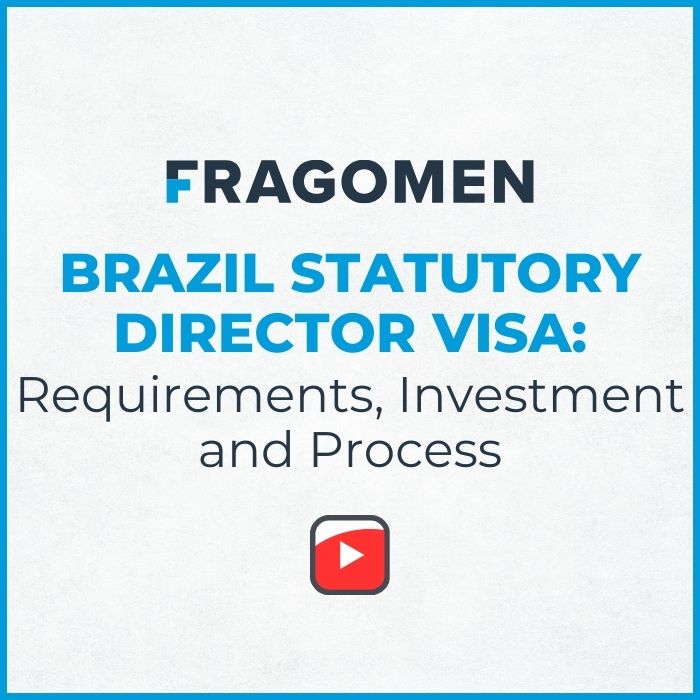
Countries / Territories
- 🌐
Related contacts
Related offices
Related contacts
Related offices
Related contacts
Related offices
Dual citizenship has for years been viewed as an insurance policy by those unsure of the political and economic future of their countries of birth. In an age of restrictive immigration policies, dual nationality can also serve as an effective tool for mobilization of urgently needed skills around the world.
Sub-Saharan Africa (SSA) governments have woken up to the importance of dual citizenship and are allowing their citizens to acquire citizenship abroad. By 2010, the number of countries in SSA allowing dual nationality exceeded 30 and it continues to grow. Like other governments in the other regions, many governments in SSA are coming to the realization that allowing their citizens to have dual nationality, will invariably result in bringing stability in their lives – and more importantly, enable them to advance their careers and thereby invest in their countries of origin without impediment.
Dual Citizenship as a tool they can use to attain business objectives
Given the regulatory uncertainty experienced in many jurisdictions in the region, the delays in issuing work permits and a need to urgently start projects that a company has secured, it is vital for mobility professionals to start viewing dual citizenship as a tool they can use to attain business objectives. The advantage of using citizens in diaspora in its mobilization is that a company is assisting the host country in its development initiative by ensuring that such a country retains its much-needed skills.
When the country's best and the brightest leave for studies and career advancement abroad, they do not return to their home countries because of a lack of employment opportunities in their field of study. That is normally referred to as brain drain. When those citizens in diaspora are brought home due to their employers' efforts and also companies who have identified them, it is brain gain. The reason being that they will be able to stay in the country and contribute towards its development through skill and knowledge transfer.
Employing countries’ citizens in diaspora always sends a clear message to the authorities that a multinational corporation is a good corporate citizen not interested solely in making profit but also in being a partner in growing local skills.
Moreover, at the outset, if a country accepts dual nationality, its citizens recruited abroad will not need work permits to work in their home countries - thereby saving a lot of time that could have been lost through waiting for a work permit to be issued.
How do mobility professionals go about doing this?
There is no single formula that can be used in this regard. However, the first step is to recruit the best and the brightest from countries that have been identified as good for the business. Second, train and develop them accordingly. Third, explain to employees the company’s strategic development goal in the country where it is investing and encourage them to be prepared to return home at some point to plough back their skills.
I encourage the mobility professionals who decide to employ citizens in diaspora or dual nationals that they must always be prepared to discuss their plans with the country's authorities for any support that they can extend to them. For instance, those in the diaspora who do not have plans to return home, regularly face the challenge of acquiring passports for themselves after years of not having them. By that time, systems have changed and evidence threshold may be high due to efforts to stem fraud. Authorities may help in expediting issuance of such documents and thereby enable them to be home very quickly. Furthermore, they may also intensify their campaigns to encourage its citizens in the diaspora to return home, as they will be having good case studies to showcase - of those who have successfully returned home and are doing something good for the country.
Therefore, always be prepared to discuss your plans with the country’s authorities so that they will be inclined to support the company where necessary and also make efforts to encourage its nationals to partake in the initiative.
If you would like to learn more about this mobility strategy, please feel free to contact me.
Countries / Territories
- 🌐
Related contacts
Related offices
Related contacts
Related offices
Related contacts
Related offices
Explore more at Fragomen

Podcast
Director Laxmi Limbani discusses how women are shaping the global space sector, the barriers they face and what is needed to support a more inclusive space workforce.

Blog post
Senior Associate Ruben Fiedler outlines the new employer information obligation under Section 45c of the German Residence Act, explaining when it applies, what employers must provide to third-country nationals recruited from abroad and the practical steps needed to ensure compliance from 1 January 2026.

Podcast
Partners Cosmina Morariu and Rahul Soni examine how immigration and global mobility trends are influencing workforce strategy across the luxury sector.

Blog post
UK Government Affairs Strategy Director Shuyeb Muquit compares the EU’s new Visa Strategy with the UK’s post-Brexit immigration system and assesses what the UK can learn to remain competitive for global talent.

Media mentions
Partner Karolina Schiffter highlights that new electronic signature rules may delay work permit procedures for foreign workers in Poland.

Blog post
Senior US Consular Manager Brian L. Simmons outlines how evolving US visitor visa rules, travel bans and new financial requirements may affect attendance at the 2026 FIFA World Cup and how early fans must prepare.

Video
In this video, Brazil Managing Partner Diana Quintas explains the statutory director visa, outlining who qualifies, key compliance considerations and what employers and directors should consider when planning appointments or changes to board leadership.

Fragomen news
Fragomen’s "Immigration Guide for the UK Tech Sector" introduces visa options available for those working and recruiting in the tech sector.

Media mentions
Europe Managing Partner George Koureas highlights the growing role of immigration in shaping global business and managing strategic risks.

Blog post
Senior Associate Tayyaba Karim and Immigration Consultant Khadija Begum examine key UK immigration developments affecting the tech sector at the start of 2026, including higher sponsorship costs, new Skilled Worker English language requirements and emerging policy reforms shaping workforce planning.

Blog post
Assistant Business Immigration Manager Shirley Kock and Senior Business Immigration Consultant Eunice Leo examine why applying early for Singapore permanent residency can strengthen long-term outcomes for foreign professionals and their families amid increasing competition and evolving immigration policies.

Blog post
UK Government Affairs Strategy Director Shuyeb Muquit outlines key passport and documentation considerations for British and Irish dual nationals as the UK’s Electronic Travel Authorisation (ETA) scheme moves into full enforcement from 25 February 2026, warning that failure to carry proof of British or Irish citizenship may result in boarding delays or refusal.

Podcast
Director Laxmi Limbani discusses how women are shaping the global space sector, the barriers they face and what is needed to support a more inclusive space workforce.

Blog post
Senior Associate Ruben Fiedler outlines the new employer information obligation under Section 45c of the German Residence Act, explaining when it applies, what employers must provide to third-country nationals recruited from abroad and the practical steps needed to ensure compliance from 1 January 2026.

Podcast
Partners Cosmina Morariu and Rahul Soni examine how immigration and global mobility trends are influencing workforce strategy across the luxury sector.

Blog post
UK Government Affairs Strategy Director Shuyeb Muquit compares the EU’s new Visa Strategy with the UK’s post-Brexit immigration system and assesses what the UK can learn to remain competitive for global talent.

Media mentions
Partner Karolina Schiffter highlights that new electronic signature rules may delay work permit procedures for foreign workers in Poland.

Blog post
Senior US Consular Manager Brian L. Simmons outlines how evolving US visitor visa rules, travel bans and new financial requirements may affect attendance at the 2026 FIFA World Cup and how early fans must prepare.

Video
In this video, Brazil Managing Partner Diana Quintas explains the statutory director visa, outlining who qualifies, key compliance considerations and what employers and directors should consider when planning appointments or changes to board leadership.

Fragomen news
Fragomen’s "Immigration Guide for the UK Tech Sector" introduces visa options available for those working and recruiting in the tech sector.

Media mentions
Europe Managing Partner George Koureas highlights the growing role of immigration in shaping global business and managing strategic risks.

Blog post
Senior Associate Tayyaba Karim and Immigration Consultant Khadija Begum examine key UK immigration developments affecting the tech sector at the start of 2026, including higher sponsorship costs, new Skilled Worker English language requirements and emerging policy reforms shaping workforce planning.

Blog post
Assistant Business Immigration Manager Shirley Kock and Senior Business Immigration Consultant Eunice Leo examine why applying early for Singapore permanent residency can strengthen long-term outcomes for foreign professionals and their families amid increasing competition and evolving immigration policies.

Blog post
UK Government Affairs Strategy Director Shuyeb Muquit outlines key passport and documentation considerations for British and Irish dual nationals as the UK’s Electronic Travel Authorisation (ETA) scheme moves into full enforcement from 25 February 2026, warning that failure to carry proof of British or Irish citizenship may result in boarding delays or refusal.


![Porthole headshot image of Fragomen [Johannesburg][SeniorManager][TibaJohannes]](https://www.fragomen.com/a/web/w5DcLsp1Dmz5hUB1Luxntk/39ScfN/johannes_porthole_2019.jpg)